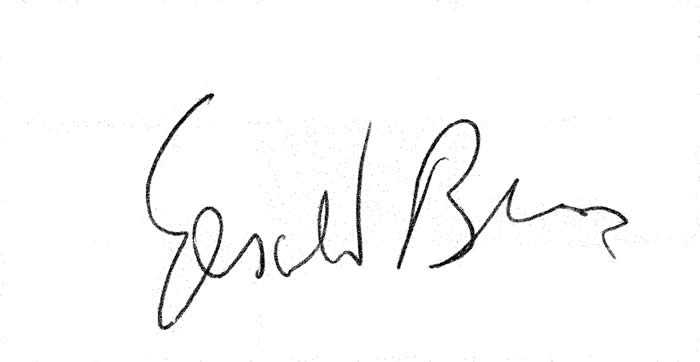
more intimate, and then their colors ran as when you hold
a cigarette to a dollar bill and get a brown
spot first before the change of state, a smouldering little hole.
"Oh Lamb, th'art changed to more than one but less than two!"
moaned both as one while his/their head(s) melted together,
a manster whose two sets of features made one face.
The arms became a single pair and breast swallowed belly
a freak beyond all carnival. It lurched away.
So a lizard in Jamaica flicks from bush to wall
in humid air a tiny one, black as pepper
attached itself to the navel of the one who'd cried "Cianfa"
and dropped, raised up on forelimbs. Each looked at each.
The gonnif stood there speechless, then yawned as if it all
were too much for him. From the wound in his tummy
and the reptile's mouth wisps of smoke trailed out and met.
What price Lucan or Ovid's metamorphoses,
their stock is down from having omitted mutual exchange
like this where bodies give each other all they have.
The beast's tail split like a flatworm's in a lab
experiment, the man's feet, calves and thighs ditto
in reverse, their skin and scales likewise interchanged.
I saw its arms extrude, and his pull in, its hindmost
legs knot into testicles, solving that problem
with, you could say, economy. Their smoking heads
swapped colors while the hair on one migrated to the other
their mutually hostile stare the only constant
as one gained his feet while the other toppled flat
its ears receding like a pushbutton aerial
and tongue split like the same experimental nematode.
He hissed and sped along the ditch, gobbled after
by the other lizarding to speech, who turned his novel shoulders
away from us to hiss to his friend "Let Bosie
crawl around the circle once the way I had to do."
My eyes may have been tired, but this is what I saw
in souls littered like so many fish-weights in a tacklebox --
Pucci the Gimp, easy enough to recognize
alone unquick, as if too halt a thing to change his shape,
and I could see, before he turned his back on me
the lizard-man was Francis, of my best friend's family.
These things are of the body. An Edwardian critic says poets remember
first love, and it's true. It doesn't "fade" as we turn to other tasks,
no "getting over," time in its celebrated role as healer. Time is always fresh
and love is not a wound, though often a disaster. In circus trucks the Clarks
sang along to country-western tunes of the sobbiest, tons of lions in the back
over the Divide. Any love (or lion) is matter for rejoicing. This town I live in
has Mount Hood, always there like the moon, always surprising. The six
and seven-beat lines of that Inferno translation are something I first did
maybe twenty-four years ago in Letters to Obscure Men. It felt the same.
Chapman put most of his Iliad footnotes in the text, saying of literalists
"I laugh to see; and yet as much abhor More license from the words than may express
Their full compression, and make clear the author; From whose truth, if you think my feet digress,
Because I use needful periphrases, Read Valla, Hessus," et cetera, et cetera.
Copyright Gerald Burns 1995-1997